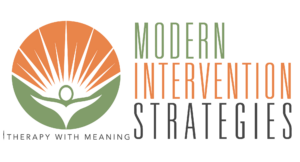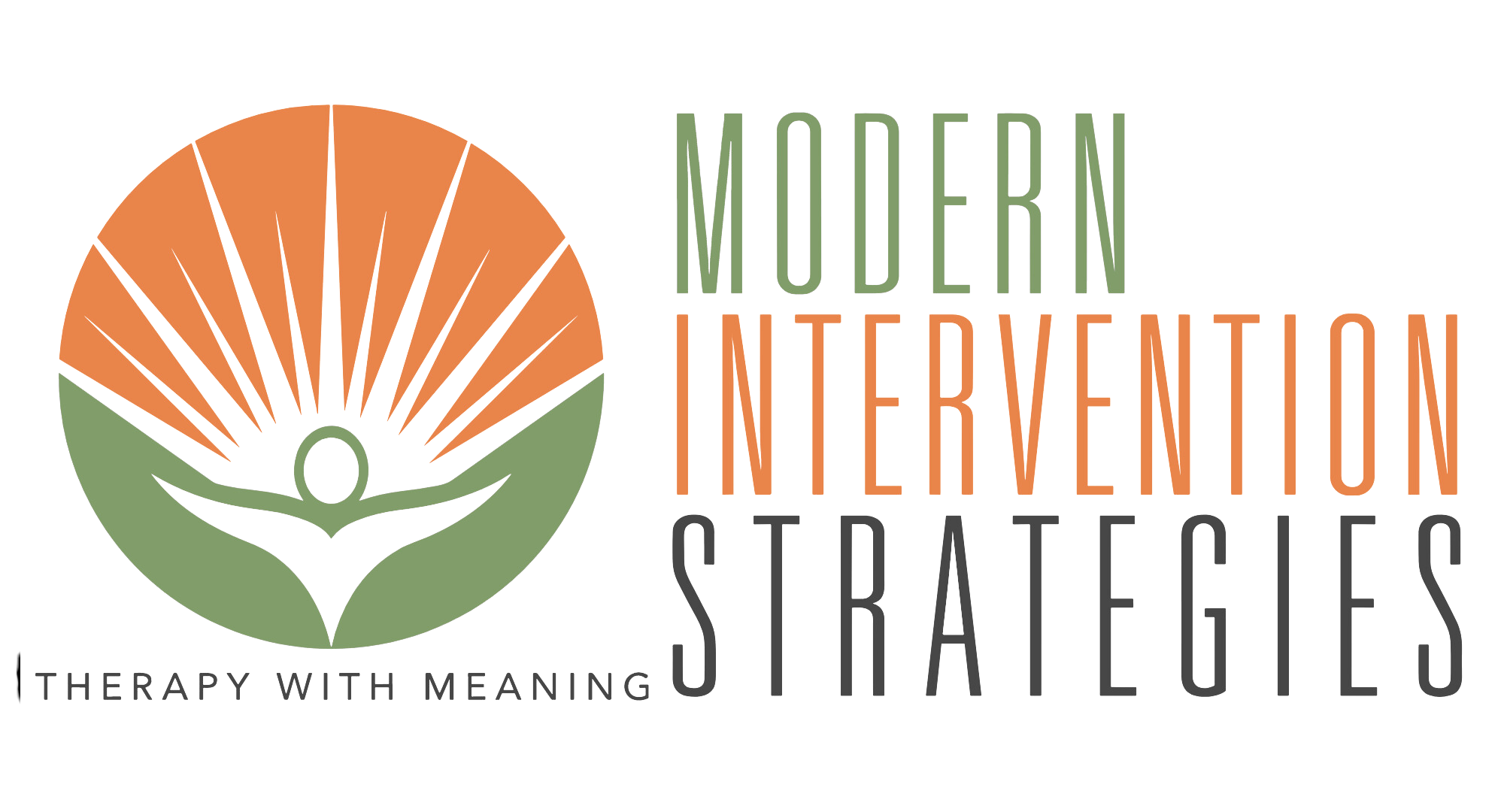How Trauma Therapy Helps Professionals Manage Emotional Pain and Triggers
Let’s Talk About Trauma
Not the kind that scrapes your knee.
The deep, heavy kind, the one that sits in your chest and makes every day feel like a battle.
At Modern Intervention Strategies, we offer trauma therapy for professionals carrying the invisible weight of past wounds, helping you heal emotional pain, manage triggers, and reclaim clarity.
Trauma can show up in so many ways:
- A childhood wound that still echoes today
- A work experience that left scars no one else could see
- A loss that created a hole you can’t seem to fill
When you’re professionally juggling deadlines, responsibilities, and constant demands, carrying unresolved trauma can feel impossible.
You’re expected to be the rock, the one who holds it all together, while inside, you’re quietly falling apart.


Here's the truth: Trauma therapy isn't just for catastrophic events.
It’s for anyone carrying an invisible weight that won’t go away.
You might tell yourself:
- “I should be able to handle this.”
- “It’s not that big of a deal.”
But trauma isn’t just about what happened.
It’s about how it made you feel and how it still affects your body today.
It shows up as:
- The tightness in your chest you can’t explain
- The irritability that sneaks into conversations
- The constant sense of waiting for something to go wrong
That’s not just everyday stress.
That’s your mind and body telling you to take care.
You don’t have to carry it alone anymore.
Healing is possible, and it starts with one honest conversation.
You’re Not Broken, You’re Human. This isn’t about “fixing” you. Because there’s nothing wrong with you. It’s about permitting yourself to heal.
Healing Isn’t About Reopening Wounds, It’s About Finally Closing Them.
Starting trauma therapy isn’t about reliving the past.
It’s about finally giving yourself the chance to heal it
in a real, healthy, and lasting way.
Whether you’re carrying:
- The shock of a sudden loss
- The invisible weight of childhood trauma
- The quiet burden of emotional wounds that never got the care they needed
There is a path forward.
And you don’t have to walk it alone.

Our Approach to Trauma Therapy
We help high-achieving professionals heal the emotional pain that even success can’t quiet.
We use evidence-based treatments like Eye Movement Desensitization and Reprocessing (EMDR) and trauma-informed Cognitive Behavioral Therapy (CBT), tailored to the unique pressures you face daily, pressure to perform, to lead, to hold it all together even when unraveling inside.
This isn’t about just managing symptoms.
It’s about transforming unresolved pain into clarity, confidence, and lasting emotional strength.

Heal Deep Emotional Wounds
Process unresolved trauma safely and thoroughly so you can lead, connect, and live without carrying invisible pain.

Reconnect with Yourself and Others
Build deeper trust, stronger relationships, and emotional presence so you stop performing connection and start feeling it.

Renew Your Resilience
Learn how to meet stress and triggers with clarity and calm instead of spiraling into survival mode.
Types of Trauma and Their Effects on Professionals
Different types of trauma can affect professionals in unique ways. Knowing what you’re dealing with helps in choosing the right trauma therapy:
Childhood PTSD and Its Symptoms in Adulthood
Trauma from childhood (e.g., abuse, neglect) affects adulthood with flashbacks, intense emotional responses, or avoidance.
Complex Trauma
Ongoing exposure to distressing situations (like a toxic work environment) leads to anxiety, emotional pain, and trust issues.
Post-Traumatic Stress Disorder (PTSD)
Results from witnessing or experiencing a traumatic event. Symptoms include nightmares, severe anxiety, and intrusive memories.
Acute Stress Disorder
Intense anxiety, dissociation, and flashbacks that occur immediately after a traumatic event. If untreated, it may develop into PTSD.
Adjustment Disorders
Emotional or behavioral reactions to significant life changes (job loss, divorce). Symptoms include depression, anxiety, and difficulty coping.
Reactive Attachment Disorder (RAD)
Often linked to childhood trauma; leads to difficulty forming emotional connections and trust issues in adulthood.
Disinhibited Social Engagement Disorder
Stemming from severe neglect in early childhood; manifests as overly familiar behavior with strangers.
Disorder Resulting from Childhood Trauma
Covers various issues like emotional dysregulation, relationship problems, and difficulty managing stress.
How to Recognize Symptoms of Trauma as a Professional
- Signs of Emotional Trauma: You may feel irritable, snapping at colleagues, or unable to handle everyday tasks. Panic might strike out of nowhere, or you might feel numb, like you’re on autopilot through meetings.
- Physical Symptoms of Trauma: Struggling to sleep or waking up exhausted? Maybe those tension headaches come right before big meetings, or your stomach is in knots after a rough day. These could be your body’s way of saying, “Something isn’t right.”
- Trauma Triggers at Work: Notice how a certain coworker or a stressful project makes your heart race or fills you with dread? Those are triggers. Recognizing them is the first step in taking back control.
When to Seek Trauma Therapy for Professionals
Knowing when it’s time to get help isn’t always easy. Professionals often try to power through, but sometimes, trauma needs more than just perseverance.
Know When to Reach Out
- Struggling with Daily Tasks: When simple things like answering emails or attending meetings feel like climbing a mountain.
- Relying on Avoidance: If you find yourself avoiding people, places, or tasks that trigger fear or anxiety, it’s a sign avoidance is becoming a coping mechanism.
- Persistent Physical Symptoms: Recurring headaches, muscle tension, or stomach problems that don’t improve with rest or self-care might be linked to unresolved trauma.
- Emotional Numbness or Overreaction: Feeling emotionally detached in conversations or, on the flip side, reacting strongly to minor issues could mean trauma is at play.
Who Can Help You Heal from Trauma?
- Trauma Therapists: Specialize in trauma-focused therapies like EMDR, CBT, or somatic therapy, helping you process and manage trauma effectively.
- Psychiatrists: Can prescribe medication to help with anxiety, depression, or sleep issues related to trauma, often in combination with therapy.
- Trauma Support Groups: Provide a space to connect with others who understand what you’re going through, offering shared experiences and coping strategies.
- Faith-Based or Holistic Therapists: Combine traditional therapy with spiritual or holistic approaches for those seeking a different path to healing.
Reaching out to the right professional can start your journey toward feeling whole and in control again.
Discover Our Blog Resources on Trauma Treatments and Healing Therapies
Understanding the different trauma response types and how they impact daily life can be eye-opening, especially for professionals dealing with stress and high-pressure environments. Or maybe you want to learn more about the physical symptoms of grief and how they can be intertwined with emotional pain and past experiences.
If you’re seeking alternatives, you might want to explore faith-based recovery programs or see how long-term rehab options work for those who need a more structured path. And if you’re trying to make sense of trauma triggers and how to handle them, there’s a lot to learn about creating a safe and supportive environment for yourself.
So, don’t stop here. Head over to our articles on specific trauma therapies and explore how understanding trauma-informed care could be the game-changer you’ve been looking for. There’s a wealth of information waiting for you—tailored to help professionals like you navigate trauma, find the right trauma therapist, or understand when trauma therapy near you might be the next best step.
Your journey doesn’t have to be walked alone. Find the resources that speak to you, explore more, and take back control of your story.





